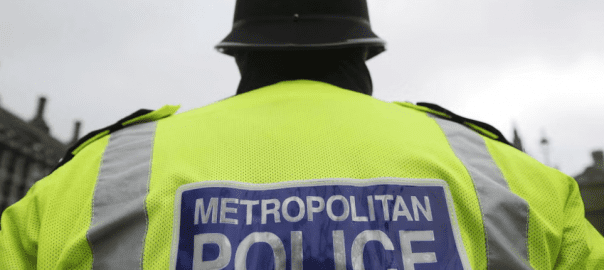June 27, 2023 /Crime/ — The Metropolitan Police is not run by Freemasons. Freemasonry is a fraternal organization that is open to men of all faiths and backgrounds. There are a number of Freemasons who are also police officers, but they do not have any special influence over the running of the force.
There have been some allegations that Freemasons have used their influence to protect fellow members from prosecution, but there is no evidence to support these claims. The Metropolitan Police has a number of policies in place to prevent any form of discrimination, including discrimination on the basis of membership of a fraternal organization.
In 2017, the Police Federation, which represents police officers in England and Wales, said that there was no evidence that Freemasons were “thwarting progress” of women and ethnic minorities in policing. The Federation said that it was “committed to ensuring that all officers are treated fairly and equally, regardless of their race, ethnicity, gender or religious beliefs.”
The Metropolitan Police has also said that it is committed to diversity and inclusion. The force has a number of policies in place to promote diversity, including a code of conduct that prohibits discrimination on the basis of race, ethnicity, gender, or religious beliefs.
In conclusion, there is no evidence to suggest that the Metropolitan Police is run by Freemasons. Freemasons are free to join the police force, but they do not have any special influence over the running of the force. The Metropolitan Police is committed to diversity and inclusion, and it has a number of policies in place to prevent any form of discrimination. The Metropolitan Police has been accused of institutional racism for a number of reasons, including:
- The Stephen Lawrence case: The investigation into the murder of Stephen Lawrence was marred by a number of errors and omissions, which led to the suspects being acquitted. These errors included the failure to properly investigate the suspects, the failure to take witness statements seriously, and the failure to protect the Lawrence family from harassment.
- The Macpherson Report: The Macpherson Report, which was published in 1999, found that the Metropolitan Police was “institutionally racist.” The report defined institutional racism as “the collective failure of an organization to provide an appropriate and professional service to people because of their colour, culture or ethnic origin.”
- Other cases: There have been a number of other cases in which the Metropolitan Police has been accused of institutional racism, including the cases of:
- The death of Jean Charles de Menezes, who was shot and killed by police in 2005 after being mistaken for a suicide bomber.
- The stop-and-search of black people, which is disproportionately high compared to the stop-and-search of white people.
- The treatment of black people in custody, who are more likely to be strip-searched and to be placed in solitary confinement.
The Metropolitan Police has taken some steps to address the issue of institutional racism, such as:
- The creation of the Independent Police Complaints Commission (IPCC): The IPCC is an independent body that investigates complaints against the police.
- The introduction of new training for police officers: The new training for police officers covers issues such as unconscious bias and institutional racism.
- The creation of the Met’s Race and Diversity Directorate: The Met’s Race and Diversity Directorate is responsible for promoting race equality and diversity within the force.
However, there is still a long way to go to address the issue of institutional racism within the Metropolitan Police. The force needs to continue to work to ensure that all people are treated fairly and equally, regardless of their race or ethnicity.
In the case of Stephen Lawrence, there is evidence to suggest that the Metropolitan Police may have been influenced by the fact that the father of one of the suspects was a freemason. Freemasonry is a fraternal organization that has been accused of being a breeding ground for racism. In 2000, a report by the Runnymede Trust found that there was evidence of “institutional racism” within the freemasonry movement.
The fact that the father of one of the Stephen Lawrence suspects was a freemason raises the possibility that the Metropolitan Police may have been reluctant to investigate the case thoroughly, or that they may have been biased against the Lawrence family. This is just one example of how institutional racism can manifest itself in the police force. It is important to remember that institutional racism is not always overt or intentional. It can be subtle and unconscious, but it can still have a significant impact on the lives of people of color.
There is no evidence to suggest that Stephen Lawrence’s murder was covered up by Freemasons in the Metropolitan Police. The main suspect’s father was a freemason, but there is no evidence that this influenced the investigation. The Macpherson Report, which was published in 1999, found no evidence of Freemasonry being involved in the investigation.
However, there have been allegations that Freemasons have used their influence to protect fellow members from prosecution. In 2000, a report by the Runnymede Trust found that there was evidence of “institutional racism” within the freemasonry movement.
The fact that the father of one of the Stephen Lawrence suspects was a freemason raises the possibility that the Metropolitan Police may have been reluctant to investigate the case thoroughly, or that they may have been biased against the Lawrence family. However, there is no evidence to support these claims.
It is important to remember that institutional racism is not always overt or intentional. It can be subtle and unconscious, but it can still have a significant impact on the lives of people of color. The Stephen Lawrence case is a reminder that we need to be vigilant against all forms of discrimination, including discrimination on the basis of membership of a fraternal organization.

